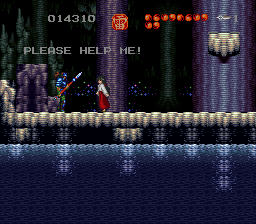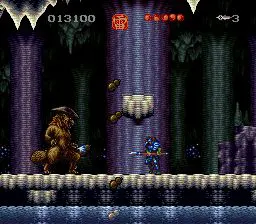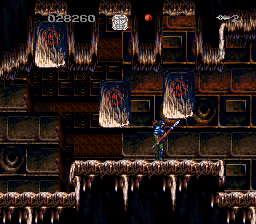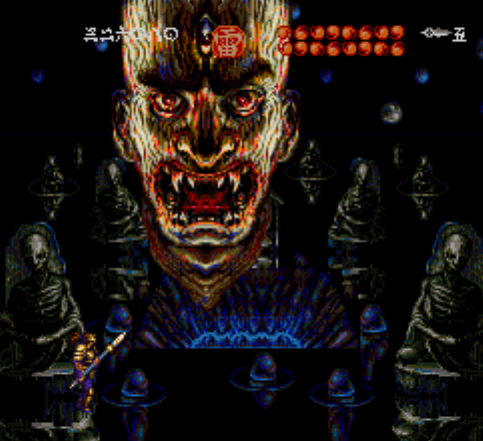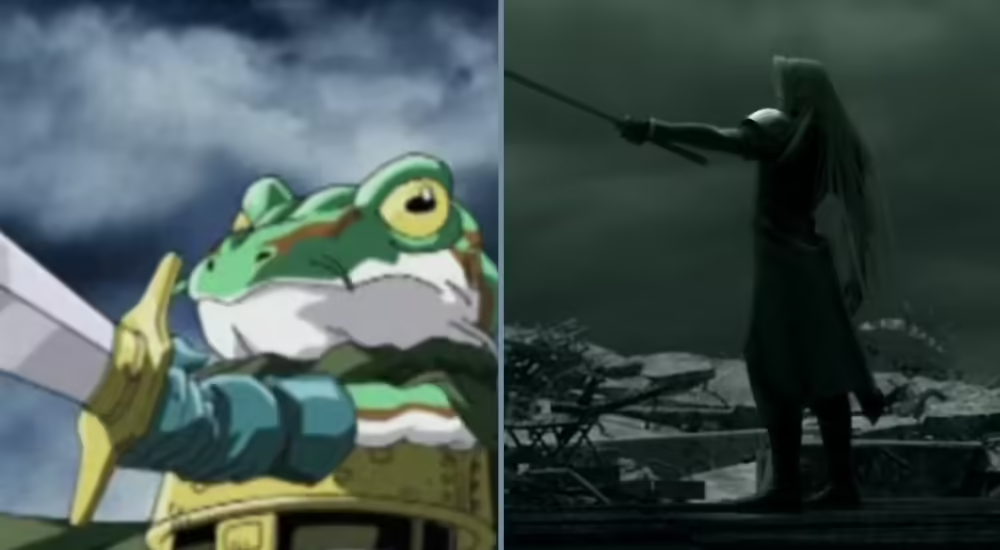In 1992, “Musya: The Classic Japanese Tale of Horror” arrived in the US by Seta Corporation, with Jorudan, the developer known for titles like “Crazy Climber” and an “Aliens vs. Predator” arcade adaptation, overseeing its development. This game depicts the perilous journey of Imoto as he endeavors to rescue his daughter, Shizuka, from the clutches of a demonic stronghold nestled within the Tengai-mura village. Using only a spear, he ventures through realms infested with demons in a bid to save his daughter and thwart the opening of a hellish portal. Imoto’s quest is challenged by his limited moveset, consisting of simple poking and twirling spear techniques, and even though other spells and enhancements exist, they offer little excitement.
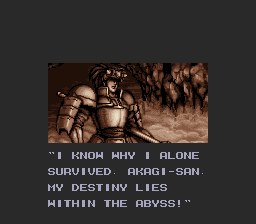
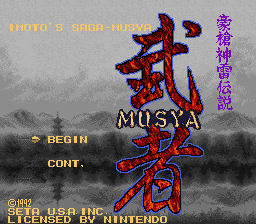
“Musya” emphasizes the need for high jumps and deliberate, slow pacing for character movement, compelling players to continuously press upwards to leap correctly. Hostile creatures are quick, durable, and prone to respawning, making the sparse screen-clearing spells rather ineffective. Progression often hinges on evading foes by leaping over them due to the daunting and tedious task of taking them down one by one. Boss battles cap off each stage and come with their own set of issues, including potential game-breaking bugs and glitches. Notably, certain boss encounters can be inadvertently skipped, leading to fruitless wandering until a game reset is necessary.
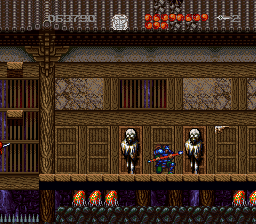
The game receives criticism for its lackluster level design, sometimes offering branching paths and exploration, other times enforcing a linear path that penalizes curiosity. The final stage is especially tough, with cramped platforms and relentless adversaries. Despite one composer’s notable track record, the score does not rise to the occasion, lacking the gravitas expected of a classic Japanese horror story. Another gripe is the repetitive nature of level design, forcing players to endure the same areas with scant variations in gameplay or tactics. The levels themselves bear different names despite their similarities, further contributing to the underwhelming design.
When it comes to visuals, “Musya” leaves much to be desired. Small and scarcely animated sprites are plagued by slowdowns, and the fog effect, meant to set a mood, ends up feeling like a nuisance. Spell animations lack punch, and adversaries reemerge too quickly after defeat, diminishing the player’s sense of progress. In contrast, the game’s backgrounds achieve a certain distinctiveness, drawing on the rich yokai theme with dim lighting and sinister imagery. Unfortunately, the potential embedded in “Musya’s” ideas is eclipsed by a general lack of refinement, which juxtaposes finely crafted backdrops with disappointing character graphics and an uninspiring sound design, turning it into a case of missed potential.


